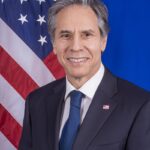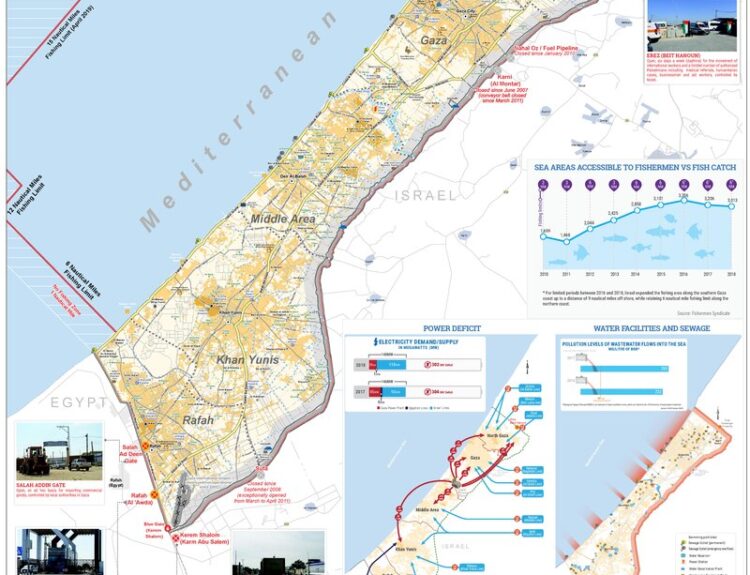A U.S. charm offensive, a new leader in the Philippines, and forceful Chinese actions have brought the U.S. and the Philippines closer together
- The U.S. and the Philippines have strengthened their alliance in recent years
- This turnaround is due to a U.S. charm offensive, a new leader in Manila, and forceful Chinese actions in the South China Sea
- The U.S. has gained access to additional Philippine military bases, strategically located in the South China Sea and Taiwan Strait
- The Philippines is becoming a valuable option for the U.S. to diversify its operating bases in the region
- The U.S. and the Philippines are conducting joint military exercises and upgrading infrastructure at Philippine military sites
- The Biden administration’s strategy to counter China by strengthening alliances is proving successful
- China’s assertiveness in the South China Sea has pushed the Philippines closer to the U.S.
- The Philippines is leveraging its alliance with the U.S. to develop its own defense capabilities
- The U.S. is demonstrating strong support for the Philippines to deter China and ensure freedom of navigation in the South China Sea
- The U.S. is taking advantage of the current political climate in the Philippines to solidify the alliance
The alliance between the U.S. and the Philippines has experienced a remarkable turnaround in recent years. This shift can be attributed to a U.S. charm offensive, the emergence of a new leader in Manila, and China’s aggressive actions in the South China Sea. The U.S. has gained access to additional Philippine military bases, strategically located in the South China Sea and Taiwan Strait, which would be crucial in the event of a conflict. Both countries are conducting joint military exercises and investing in infrastructure upgrades at Philippine military sites. The Biden administration’s strategy to counter China by strengthening alliances is proving successful, as China’s assertiveness in the region has pushed the Philippines closer to the U.S. The Philippines is leveraging its alliance with the U.S. to develop its own defense capabilities and ensure its security. The U.S. is demonstrating strong support for the Philippines to deter China and maintain freedom of navigation in the South China Sea. Taking advantage of the current political climate in the Philippines, the U.S. is solidifying the alliance to future-proof the relationship.
Factuality Level: 8
Factuality Justification: The article provides a detailed account of the recent developments in the U.S.-Philippines alliance, including the reasons behind the strengthening of the relationship, military exercises, strategic implications, and historical context. The information presented is supported by quotes from experts and officials, as well as specific examples of joint military activities and diplomatic engagements. The article maintains a factual tone throughout and does not contain significant digressions, misleading information, sensationalism, or bias.
Noise Level: 3
Noise Justification: The article provides a detailed analysis of the evolving relationship between the U.S. and the Philippines, highlighting the factors contributing to the strengthening of their alliance. It discusses the historical context, recent developments, military exercises, infrastructure upgrades, and geopolitical implications. The article is focused, supported by evidence and expert opinions, and offers insights into the strategic considerations of both countries. However, it could benefit from more critical perspectives and a deeper exploration of potential risks or challenges in the alliance.
Financial Relevance: Yes
Financial Markets Impacted: The article does not provide specific information about financial markets or companies impacted.
Presence Of Extreme Event: No
Nature Of Extreme Event: No
Impact Rating Of The Extreme Event: No
Rating Justification: The article discusses the strengthening alliance between the U.S. and the Philippines, focusing on military cooperation and countering China’s actions in the South China Sea. While the article does not mention any extreme events or their impacts, it is relevant to financial markets as it highlights the Biden administration’s strategy to counter China and strengthen alliances in the Asia-Pacific region.
Public Companies: American Enterprise Institute (N/A)
Key People: Rodrigo Duterte (Former President of the Philippines), Ferdinand Marcos Jr. (President of the Philippines), Antony Blinken (U.S. Secretary of State), Enrique Manalo (Filipino counterpart of U.S. Secretary of State), Zack Cooper (Senior Fellow at the American Enterprise Institute), John Aquilino (Head of the U.S. Indo-Pacific Command), Collin Koh (Senior Fellow at the S. Rajaratnam School of International Studies in Singapore), Jay Batongbacal (Director of the Institute for Maritime Affairs and Law of the Sea in the Philippines), Peter Landers (Contributor to the article)
 www.wsj.com
www.wsj.com 





